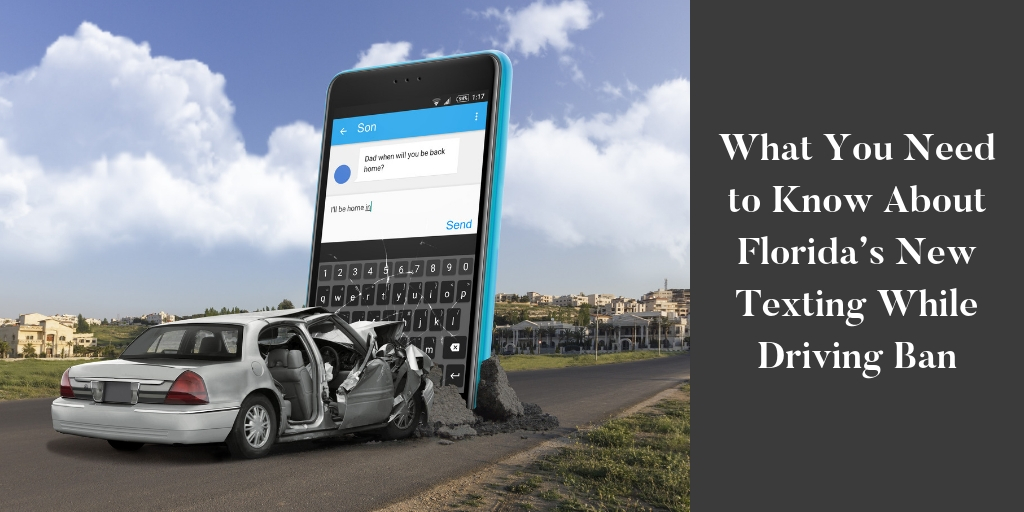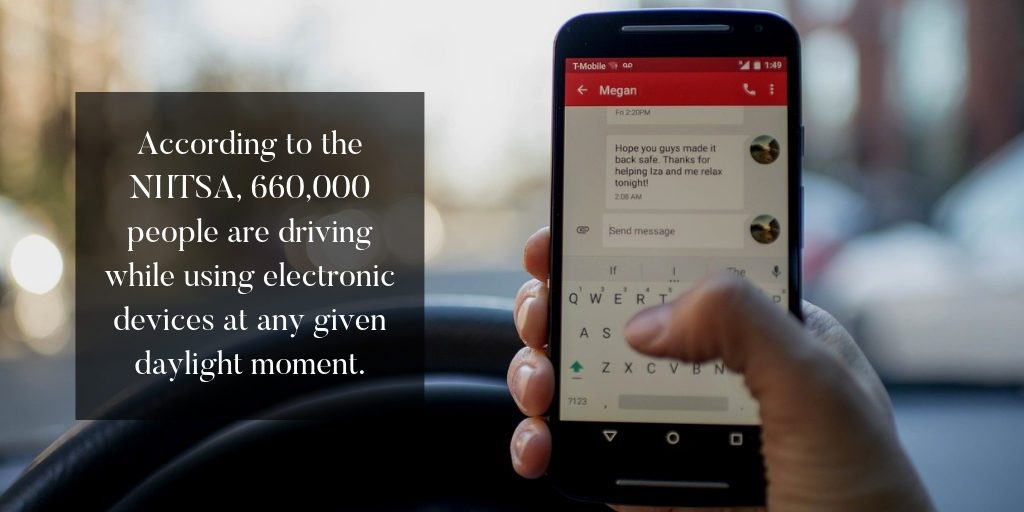
Last week, the Florida House approved a bill that would make texting while driving a primary offense in the state of Florida. Currently, texting while driving is a secondary offense in our state, which means that officers can’t pull you over for using your phone while driving without witnessing another traffic violation.
Throughout the month of April, we’ve focused our blogs and content primarily on the topic of distracted driving. That’s because April was Distracted Driving Awareness Month. We’ve covered the risks of driving while distracted. We’ve covered the costs of driving while distracted. Today, we’ll take a look at how we’re working to stop distracted driving.
Texting While Driving in Florida
Last week, the Florida House voted overwhelmingly to approve a bill that would make texting while operating a motor vehicle a primary offense in Florida. As the law stands today, texting while driving is a secondary offense.
While you can currently be cited for texting while driving, you cannot be pulled over for it specifically. If a police officer witnesses you making another traffic violation, they may pull you over and cite you for the original offense and tack on a citation for texting while driving for good measure.
The bill is headed for the office of Governor Ron DeSantis. Gov. DeSantis is expected to sign the bill into law, which will officially make texting while driving a primary offense.
What Does This Bill/Law Mean for You?
Studies show us that a large portion of drivers on the road use their phone while driving. At any given daylight moment, 660,000 drivers across the country are on their electronic devices. So, how will this bill affect you and other drivers on the road?
Here are some facts about what will, and what won’t, change:
- You can still use your phone for a GPS/navigational purpose
Don’t worry about dusting off the old road atlas. You are still allowed to use your GPS app to get you where you need to go. - You can still use your phone at red lights or in traffic
Using your phone while stationary is not banned by the bill. This is unchanged from the current law about texting while driving. As long as your vehicle is stationary at the time, you cannot be cited for using your cellphone behind the wheel. - Officers will be required to note the ethnicity of anyone who is cited
If you are pulled over for texting while driving, the officer who stopped you is required to report your race and ethnicity. This information will be sent on and reviewed by the governor and other government officials to prevent racial profiling. - If signed into law, you’ll have a grace period until 2020
If the bill is signed into law by the Governor’s office, Florida drivers will be safe from citation until January 1st of 2020. The law would go into effect on October 1st, but officers will be required to issue only verbal and written warnings from October until January 1st.
Contact the Brooks Law Group
While stronger laws will certainly help the distracted driving epidemic, it won’t solve it. As long as there are people on the road, poor decisions and mistakes will be made.

If you or a loved one has been injured by a distracted driver, you deserve compensation for their carelessness. At the Brooks Law Group, our team of distracted driving attorneys are ready to fight for your case from start to finish. We have a proven track record of results, so you can trust that your case is in capable hands.
Our attorneys and staff are available 24/7, and we’re dedicated to providing you with the best client experience possible. Call our offices at (800) LAW-3030 or fill out our online contact form on the left today for your free case evaluation. If we don’t recover money for your case, you won’t owe us anything. Don’t wait, start your journey to justice today!














